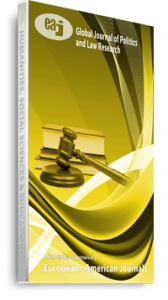The next hot topic, the exploitation of Marine Genetic Resources [MGR] in the ‘Area beyond National Jurisdiction’ [ABNJ], and what legal regimes can or could be used in its governance, is an ongoing and heated debate in international circles. The term ‘Genetic Resources’ [GR] lacks a concise definition (Greibner). In general, GR can be understood to mean biological processes or living things, or components thereof, which are hereditary in nature and which have real or potential value (Leary, Greibner, Drankier). GR is one form of ‘living resources’ [LR], but unlike food or other LR, GR, being “genetic”, is by its definition connected directly to the process of inheritance or to the materials relating to inheritance (such as DNA or RNA), and as a “resource” has either ‘real’ or ‘potential’ value (Vierros). Enzymes taken from sea anemones, biological processes replicated from undersea microbes, and genes harvested from Arctic fish are all examples of MGR (Leary). These exciting new resources represent a vast new source of wealth for humanity; but how they should be harvested, what legal regimes should define their use, what benefit sharing should occur, and how these resources should be conserved are all questions that have yet to be answered. Even the nature of how these unique resources should be classified in the current legal framework has yet to be answered. Current legal regimes were not written with ‘MGR’ in mind (Vierros). The massive presence of biota in the ABNJ that we know exists today was not fully understood at the time that most of the legal mechanisms we live under today were written (Churchill). The four most important international legal instruments relevant to this do not even make direct reference to MGR (Drankier, Greibner), namely: 1.) The United Nations Convention on the Law of the Sea (UNCLOS); 2.) The Convention on Biodiversity (CBD), and its subsequent Nagoya protocol; 3.) The three components of Antarctic Treaty System (ATS): the original Antarctic Treaty, the Protocol on Environmental Protection (Madrid protocol), and the Convention on the Conservation of Antarctic Marine Living Resources (CCAMLR); and 4.) modern international instruments relating to intellectual property rights (IPR) such as WTO regulations, TRIPS, and WIPO among others. The term ‘Marine Genetic Resources’ does not even appear in the text of the UNCLOS, the most important of these four instruments (Greibner). The other instruments discuss either GR or LR in a more general sense, not necessarily in relationship to the Ocean; or else MGR in a more localized area. These instruments, upon which our modern, international regime of Ocean use rests, contain a ‘legal lacuna’ in regard to MGR and its governance; nevertheless, it is in precisely these instruments that we must search for a means to fill this gap. While not related to MGR as such, the United Nations Food and Agriculture Organization [FAO]’s International Treaty on Plant Genetic Resources for Food and Agriculture (ITPGRFA), also known as the ‘seed treaty’, is another legal instrument of interest, as its multilateral benefit sharing program [MLS] relating to land based plant genetic resources, has some applicability in the legal debate surrounding MGR in the ABNJ. This paper will discuss in detail the controversy surrounding MGR in the ABNJ from a variety of legal perspectives surrounding these international instruments, which remain at the heart of this debate despite having sparked it through their own paucity on this subject. It will touch on key issues relating to these documents and will discuss some of the suggestions being made on how to resolve the current gap.
Keywords: Area Beyond National Jurisdiction [ABNJ], Marine Genetic Resources [MGR], The Area, United nations Convention on the Law of the SEA [UNCLOS].

